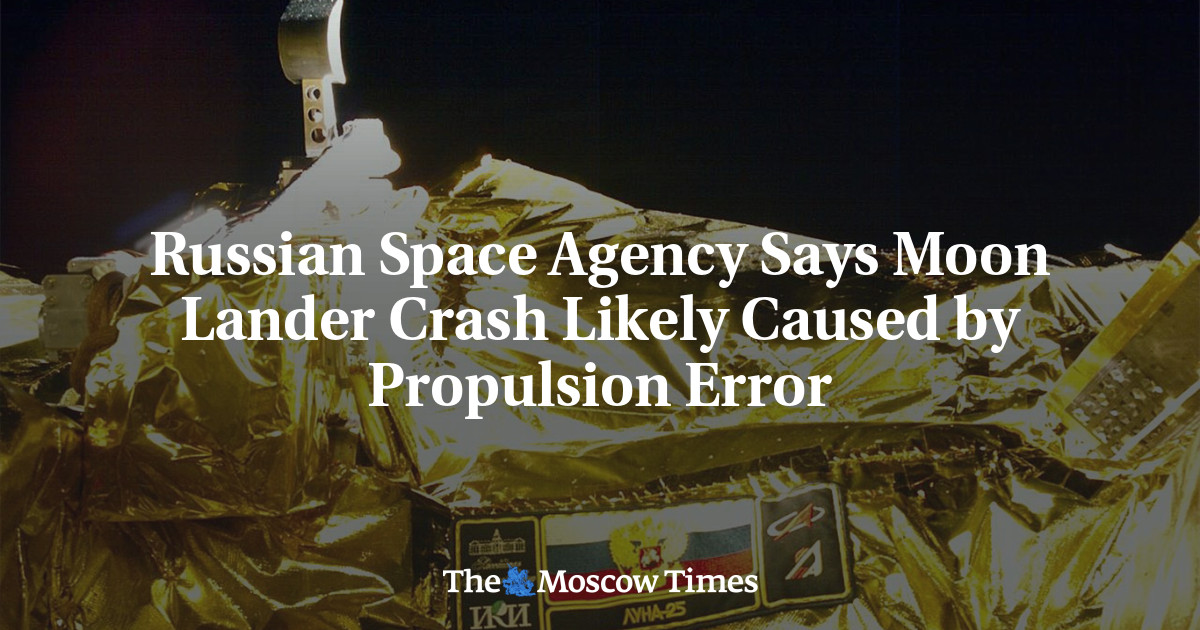
Russia’s space agency Roscosmos said Tuesday that the dramatic crash of its Luna-25 Moon lander last month was likely caused by an error in the craft’s propulsion system.
The lunar mission, Russia’s first in nearly 50 years, was meant to mark the country’s return to independent Moon exploration.
But despite the lander’s successful entry into the Moon’s orbit, it crashed onto the lunar surface during pre-landing maneuvers on Aug. 19.
“The most probable cause of the accident was the abnormal functioning of the onboard control system,” Roscosmos said in a statement.
Roscosmos said Luna-25’s angular velocity measuring unit had failed to send commands to turn off the propulsion system due to jumbled signals “with different priorities of execution.”
The lander’s propulsion system blasted for 127 seconds instead of the planned 84 seconds when performing a corrective pulse to transfer from a circular lunar orbit to an elliptical pre-landing orbit.
“As a result, the station moved into an off-target open orbit and collided with the lunar surface,” Roscosmos said.
In its preliminary findings on Tuesday, Roscosmos said it has formulated “recommendations and additional measures” for future lunar missions.
Roscosmos chief Yury Borisov has said that the Luna-25 mission could restart as soon as 2025.